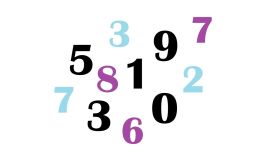Israeli voters readied for a fourth election in under two years Tuesday, with Prime Minister Benjamin Netanyahu ahead in the polls but uncertain of clinching a governing majority.
The veteran leader hopes Israelis will reward him for a world-leading Covid-19 vaccination campaign, and for the diplomatic coup of normalising ties with the United Arab Emirates and three other Arab nations.
But although his right-wing Likud party is leading in the opinion polls, it will need coalition partners to secure a majority in the 120-seat Knesset.
That means Israel is looking at three possible outcomes: another coalition under Netanyahu, an ideologically divided government united only by its opposition to him, or a looming fifth election.
An unprecedented period of political deadlock has seen Netanyahu, Israel's longest-serving prime minister, repeatedly fail to secure a stable coalition.
On the eve of the vote, Netanyahu campaigned at Jerusalem's bustling Mahane Yehuda market, a Likud stronghold that has fully re-opened with Israel having vaccinated more than half of its nine million people.
"You need to go the polls tomorrow and vote Likud!" he shouted at the supportive crowd.
The election Tuesday may not bring immediate certainty, said Dahlia Scheindlin, a political analyst and pollster.
"The question is whether there can be some sort of determining result," she said.
"At present, it doesn't look like either [Netanyahu's camp or his rivals] has sufficient votes to reach a decisive answer."
Right-wing shift
Scheindlin noted a reality that has shaped Israeli politics since the turn of the century: the electorate's right-ward drift, especially concerning the Palestinian conflict.
"Whoever becomes prime minister, the country is likely to espouse a right-wing direction," she said.
With polling projecting right-wing parties winning nearly 80 seats, Netanyahu has multiple ideological partners to form a government with.
But the divisive 71-year-old leader, who is standing trial over corruption, has alienated former allies.
Former senior Likud member Gideon Saar – whose New Hope party could win up to 10 seats – has ruled out joining a Netanyahu-led government.
Former defence minister and religious nationalist Naftali Bennett has campaigned against the prime minister and not ruled out joining a coalition to oust him.
Bennett's Yamina party is therefore seen as a likely kingmaker.
Extremists
For Netanyahu, who portrays himself as the only leader capable of keeping Israel safe, forming a government may require dealing with extremists.
On that list is the new Religious Zionism alliance that includes Itamar Ben-Gvir, who has voiced admiration for the mass-murderer of 29 Palestinian worshippers in Hebron in 1994, Baruch Goldstein.
Even top Likud member and energy minister Yuval Steinitz said it would be improper to sit with Ben-Gvir.
But if Religious Zionism crosses the 3.25 percent support threshold and joins parliament, Netanyahu may need to align with the extremists opposed to Palestinian statehood in any form.
A government that includes Likud, its ultra-Orthodox religious allies, as well as Yamina and Religious Zionism could box even the hawkish Netanyahu into uncomfortable corners.
Such a shift would come at a time Netanyahu has lost a right-wing ally in the White House, where President Joe Biden has replaced Donald Trump.
While Trump stayed silent as Jewish settlements in the occupied West Bank expanded, "the new Biden administration has already indicated a rollback of the positions held by president Trump," Scheindlin said.
Fifth election?
The prime minister's main challenger is the centrist former television anchor Yair Lapid, but his prospects are dimmed by disunity in the anti-Netanyahu camp.
Lapid has said he will not insist on being prime minister in an anti-Netanyahu coalition if that helps unseat the premier.
While his Yesh Atid party will probably place second behind Likud, Lapid has no evident path to power without right-wingers Bennett and Saar, given the beleaguered state of Israel's left.
Appearing on Israel's Channel 20 Sunday, Bennett signed a pledge that he "won't allow Yair Lapid to be prime minister."
The move aimed at reassuring his supporters also underscored the anti-Netanyahu camp's divisions.
If Netanyahu can't get to 61 seats and opponents cannot find common ground, a fifth election inside of three years is possible.
It's a prospect that would keep Netanyahu in power as caretaker premier for now and one that could suit him, said political analyst Gideon Rahat.
Netanyahu "can easily go to a fifth, sixth or seventh election," Rahat said.
by Ben Simon, AFP


























Comments